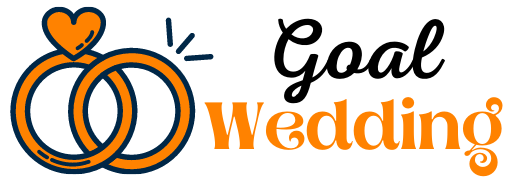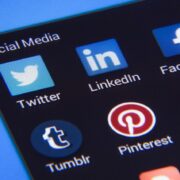The Norissa Valdez Leaked Scandal: Unveiling the Impact and Lessons Learned
-
Table of Contents
- The Norissa Valdez Leaked Scandal: Unveiling the Impact and Lessons Learned
- The Norissa Valdez Leaked Scandal: Unraveling the Story
- The Impact of the Norissa Valdez Leaked Scandal
- 1. Emotional and Psychological Distress
- 2. Damage to Reputation and Career
- 3. Cyberbullying and Online Harassment
- 4. Legal and Financial Consequences
- The Lessons Learned from the Norissa Valdez Leaked Scandal
- 1. Strengthening Digital Security
- 2. Raising Awareness about Consent
- 3. Promoting Responsible Online Behavior
- 4. Advocating for Stronger Privacy Laws
- Q&A
- 1. How can individuals protect themselves from privacy breaches?
- 2. What should someone do if they become a victim of a privacy breach?
- 3. How can society combat cyberbullying and online harassment?
- 4. Are there any legal consequences for leaking private content?
- 5. How can organizations contribute to preventing privacy breaches?
- Conclusion
In today’s digital age, privacy breaches and leaked content have become a prevalent concern. One such incident that recently made headlines is the Norissa Valdez leaked scandal. This article aims to delve into the details of the scandal, its impact on individuals and society, and the lessons we can learn from it.
The Norissa Valdez Leaked Scandal: Unraveling the Story
The Norissa Valdez leaked scandal refers to the unauthorized release of private and intimate content involving Norissa Valdez, a well-known public figure. The leaked content, which included explicit images and videos, quickly spread across various online platforms, causing significant distress and humiliation for Valdez.
While the exact details of how the content was leaked remain unclear, it is believed that the breach occurred through a compromised personal device or cloud storage account. The leaked content was then shared and circulated widely, leading to a massive invasion of Valdez’s privacy.
The Impact of the Norissa Valdez Leaked Scandal
The Norissa Valdez leaked scandal has had far-reaching consequences, not only for Valdez but also for society as a whole. Here are some of the key impacts:
1. Emotional and Psychological Distress
Being a victim of a privacy breach can have severe emotional and psychological consequences. Valdez, like many others who have experienced similar incidents, likely faced feelings of shame, embarrassment, and violation. The public exposure of intimate content can lead to long-lasting trauma and damage to one’s mental well-being.
2. Damage to Reputation and Career
Public figures like Norissa Valdez often rely on their reputation and public image for their careers. The leaked scandal can tarnish their reputation, leading to potential job loss, damaged professional relationships, and limited future opportunities. The impact on Valdez’s career may be significant, as the leaked content could be used against her in various contexts.
3. Cyberbullying and Online Harassment
Privacy breaches often open the door to cyberbullying and online harassment. Once leaked, the content can be weaponized by malicious individuals who engage in cyberbullying, spreading rumors, and making derogatory comments. Valdez may have become a target of online harassment, exacerbating the emotional distress caused by the scandal.
4. Legal and Financial Consequences
Privacy breaches can have legal and financial implications for both the victim and the perpetrators. Valdez may pursue legal action against those responsible for the leak, seeking compensation for damages and potential violations of privacy laws. Additionally, the scandal may result in financial losses for Valdez, such as decreased brand endorsements or canceled contracts.
The Lessons Learned from the Norissa Valdez Leaked Scandal
The Norissa Valdez leaked scandal serves as a stark reminder of the importance of privacy and the potential risks associated with our digital lives. Here are some valuable lessons we can learn from this incident:
1. Strengthening Digital Security
Protecting our digital devices and online accounts is crucial to prevent privacy breaches. Implementing strong passwords, enabling two-factor authentication, and regularly updating security software can significantly reduce the risk of unauthorized access to personal information.
2. Raising Awareness about Consent
The scandal highlights the importance of consent in the digital realm. It is essential to educate individuals about the significance of obtaining explicit consent before sharing or distributing any private content. Respect for privacy should be a fundamental principle in our online interactions.
3. Promoting Responsible Online Behavior
As users of digital platforms, we must promote responsible online behavior. This includes refraining from sharing or engaging with leaked content, reporting privacy breaches, and supporting victims of such incidents. By fostering a culture of empathy and respect, we can contribute to a safer and more compassionate online environment.
4. Advocating for Stronger Privacy Laws
The Norissa Valdez leaked scandal underscores the need for robust privacy laws and regulations. Governments and organizations should work together to establish comprehensive frameworks that protect individuals from privacy breaches and hold perpetrators accountable. Stricter penalties for those involved in leaking private content can act as a deterrent.
Q&A
1. How can individuals protect themselves from privacy breaches?
– Implement strong passwords and enable two-factor authentication for online accounts.
– Regularly update security software on personal devices.
– Be cautious while sharing personal information online and avoid oversharing.
– Use secure and encrypted communication channels for sensitive conversations.
– Regularly review privacy settings on social media platforms and adjust them according to personal preferences.
2. What should someone do if they become a victim of a privacy breach?
– Document and collect evidence of the breach, including screenshots or saved conversations.
– Report the incident to the relevant platform or website where the content was shared.
– Seek legal advice to understand potential courses of action and remedies available.
– Inform friends, family, and colleagues about the situation to prevent further spread of the content.
– Reach out to support networks, such as helplines or counseling services, to cope with the emotional impact.
3. How can society combat cyberbullying and online harassment?
– Educate individuals about the consequences of cyberbullying and the importance of empathy.
– Encourage bystander intervention by reporting and speaking out against online harassment.
– Support victims by offering emotional support and resources.
– Advocate for stricter regulations and policies against cyberbullying and online harassment.
– Promote digital literacy programs that teach responsible online behavior.
4. Are there any legal consequences for leaking private content?
Leaking private content without consent can have legal consequences, depending on the jurisdiction and applicable laws. In many countries, privacy laws protect individuals from unauthorized disclosure of private content. Perpetrators may face civil lawsuits and criminal charges, including invasion of privacy, harassment, or distribution of explicit material without consent.
5. How can organizations contribute to preventing privacy breaches?
– Implement robust data protection measures, including encryption and secure storage.
– Conduct regular security audits and vulnerability assessments to identify potential risks.
– Educate employees about privacy best practices and the importance of data protection.
– Establish clear policies and guidelines regarding the handling of sensitive information.
– Respond promptly and transparently to any privacy breaches, taking appropriate actions to mitigate the impact.
Conclusion
The Norissa Valdez leaked scandal serves as a stark reminder of the potential consequences of privacy breaches in the digital age. It highlights the importance of strengthening digital security, promoting responsible online behavior, and advocating for stronger privacy laws. By learning from incidents





